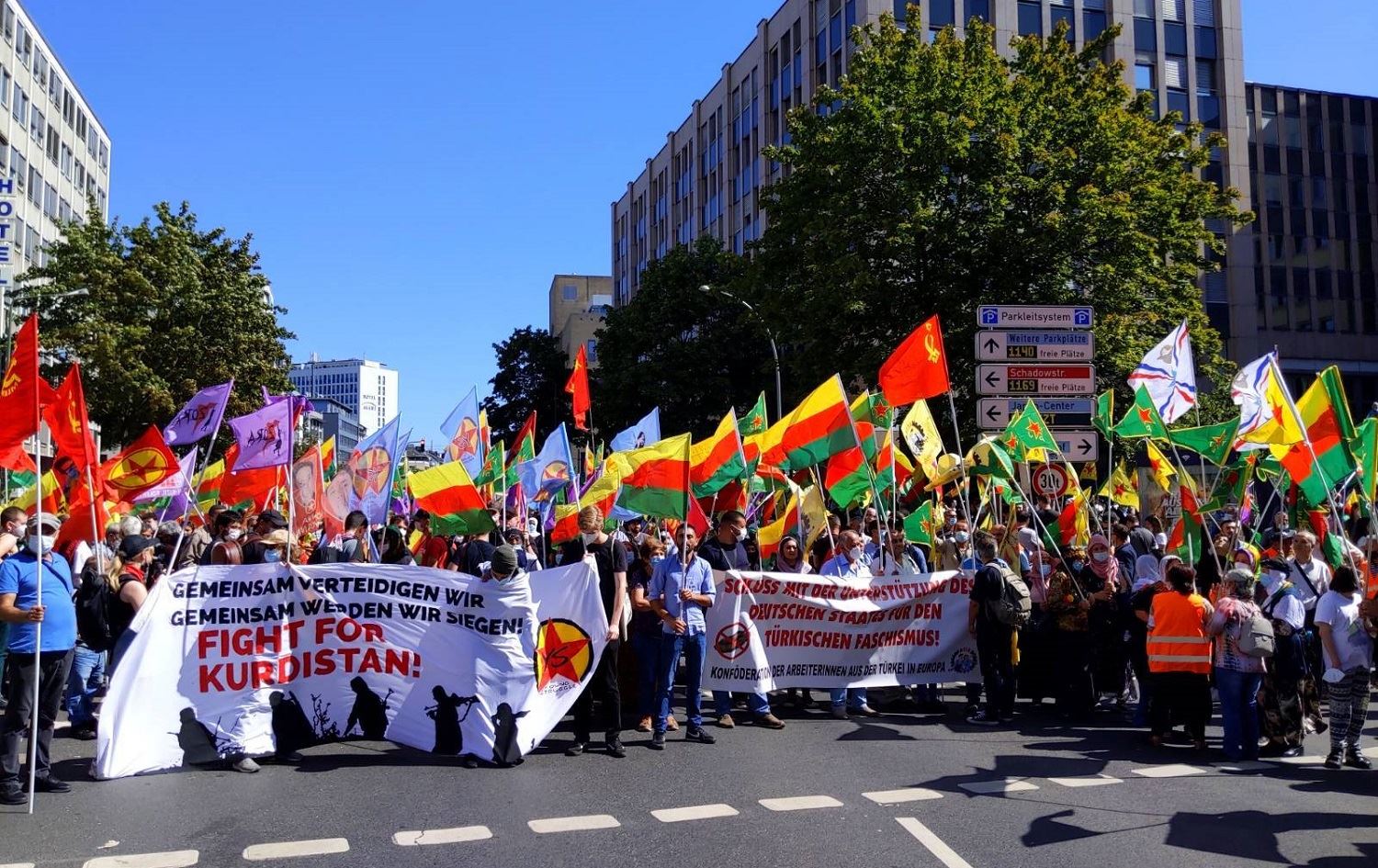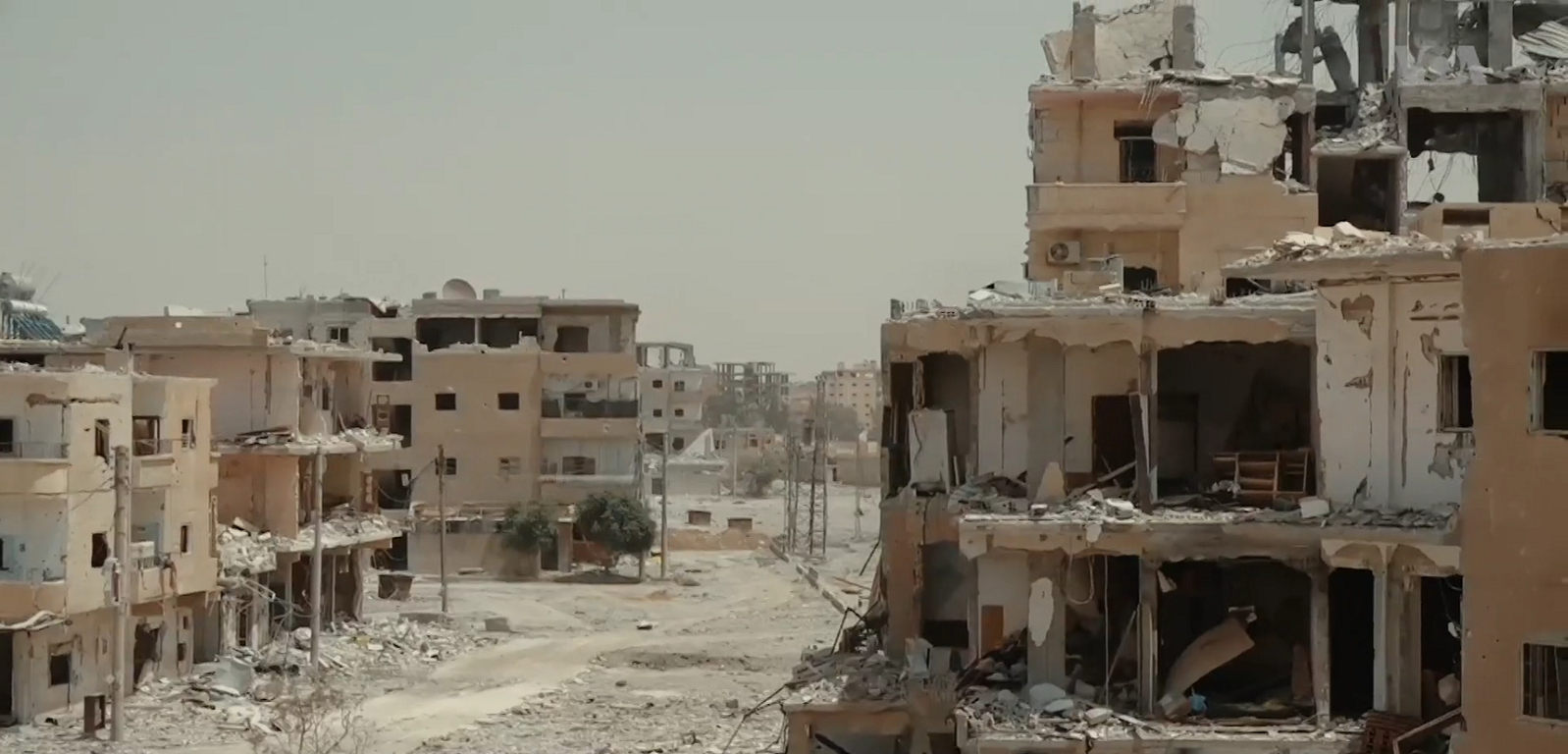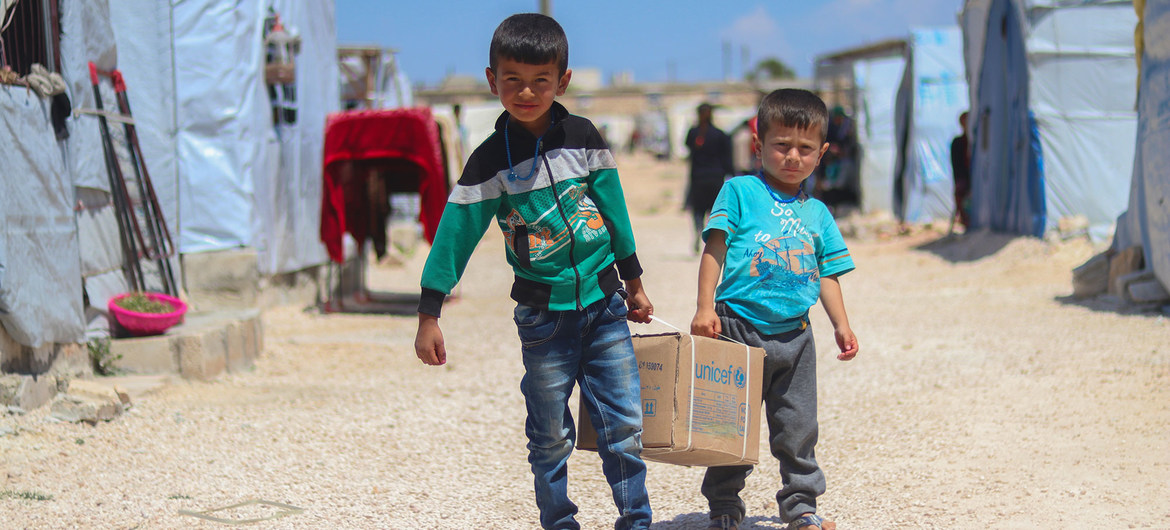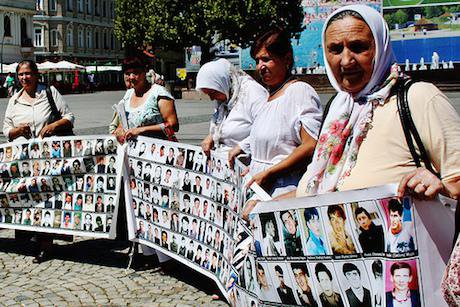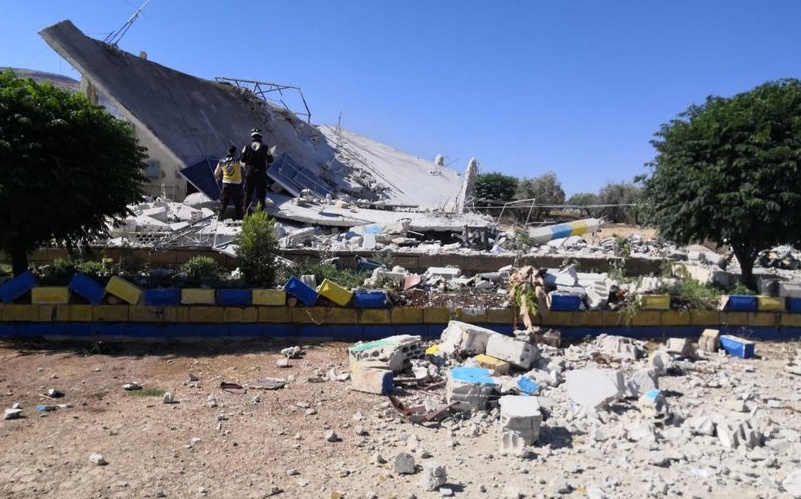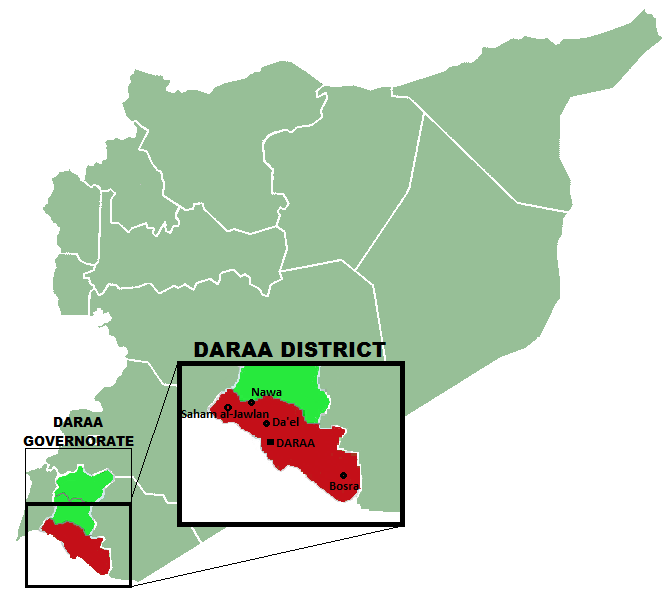
Syria: southern ceasefire breaking down
Fighting has erupted again in the southern Syrian town of Daraa, where an opposition-controlled neighborhood is resisting pressure to disarm. Assad regime forces placed the area, Daraa al-Balad, under military siege in late June, and escalated to intermittent shelling of the enclave. A new ceasefire was brokered by pro-regime Russian forces, under which the opposition would begin the process of disarming but maintain some autonomy within the area. However, the ceasefire broke down almost immediately—allegedly due to violations by Iran-backed militias fighting for the regime. Shelling of the neighborhood has since resumed. The UN relief agency UNRWA has especially expressed concern for the some 3,000 Palestinian refugees living in a camp within the besieged area. UNRWA reports that water and electricity are completely cut off inside the camp. (Map: Wikimedia Commons)



